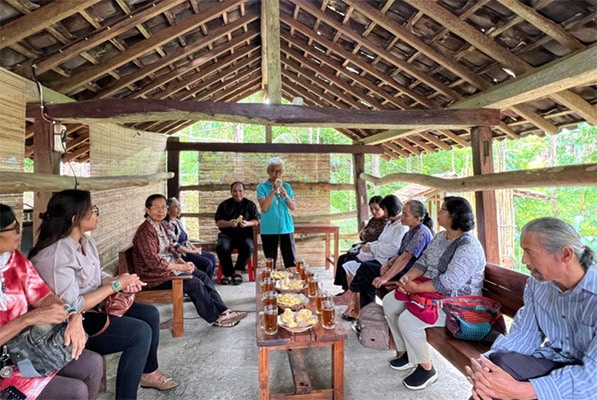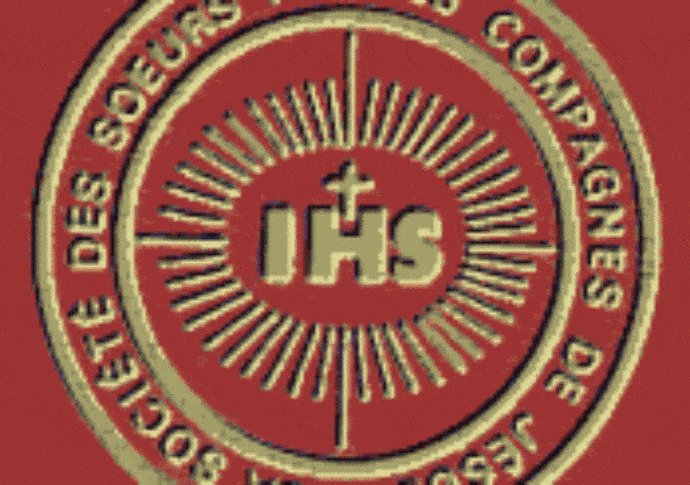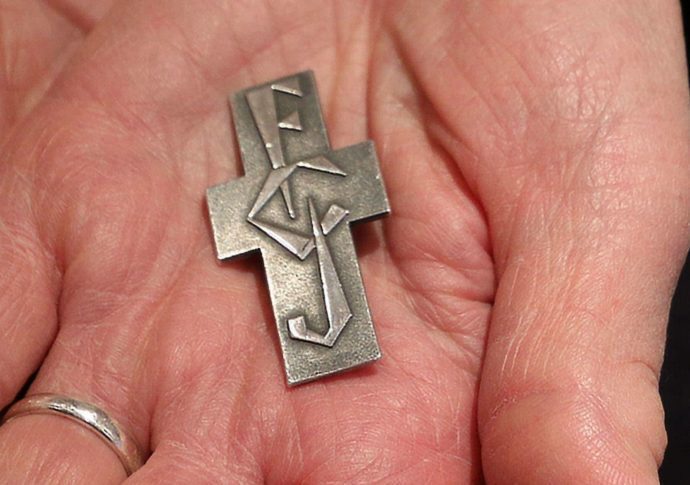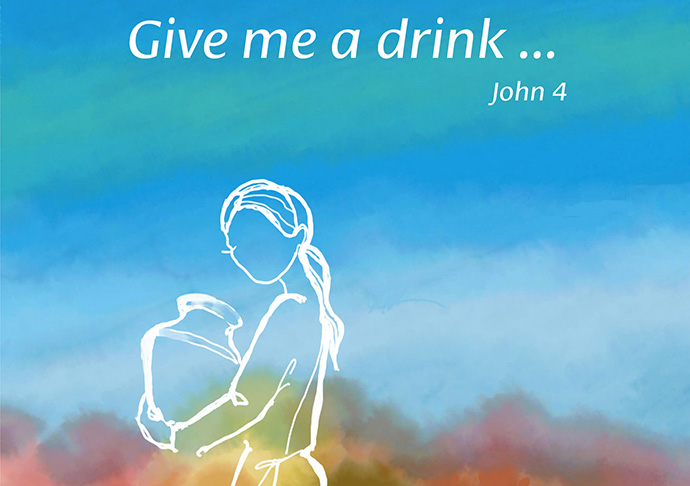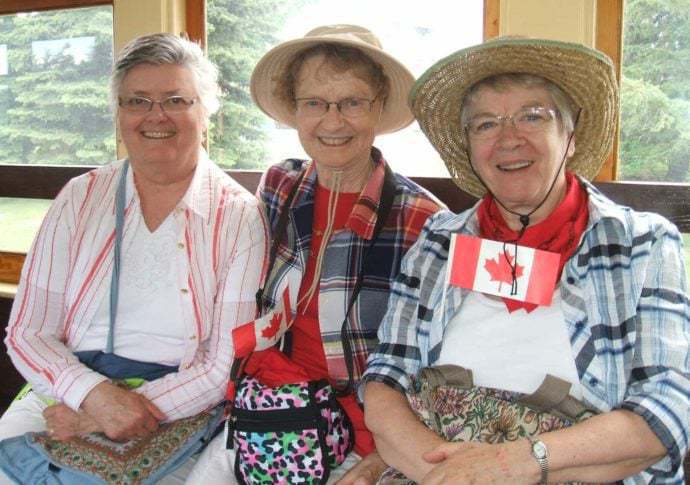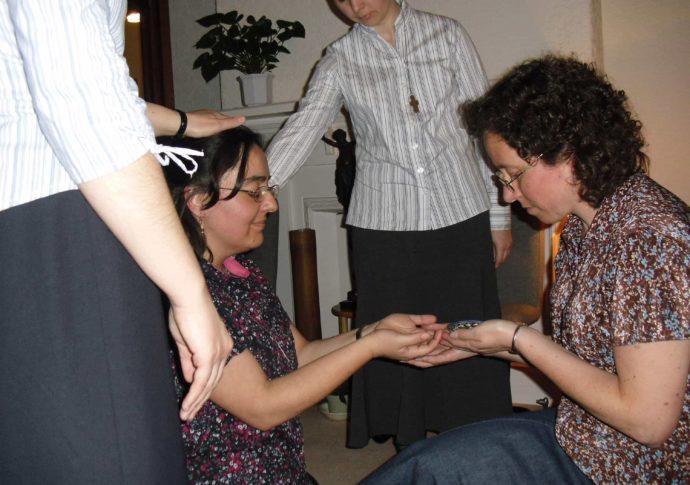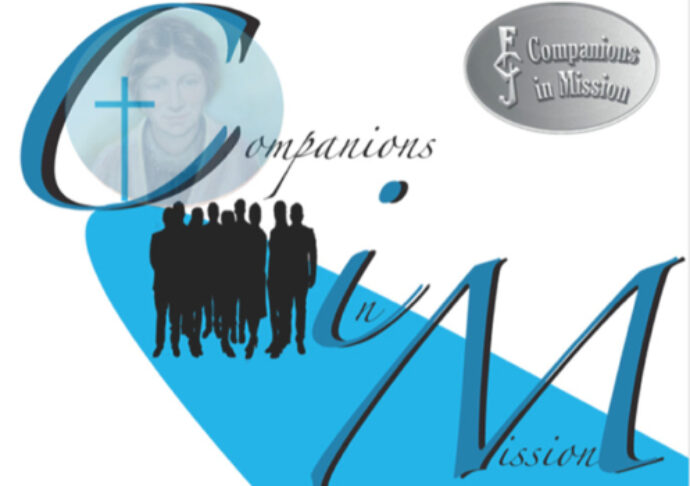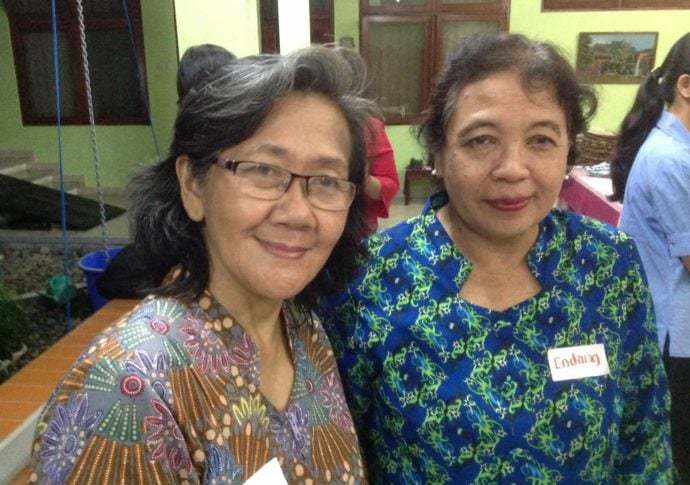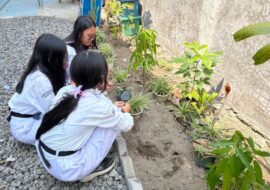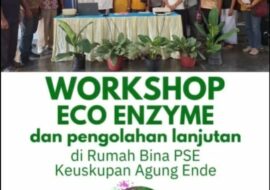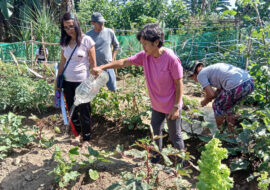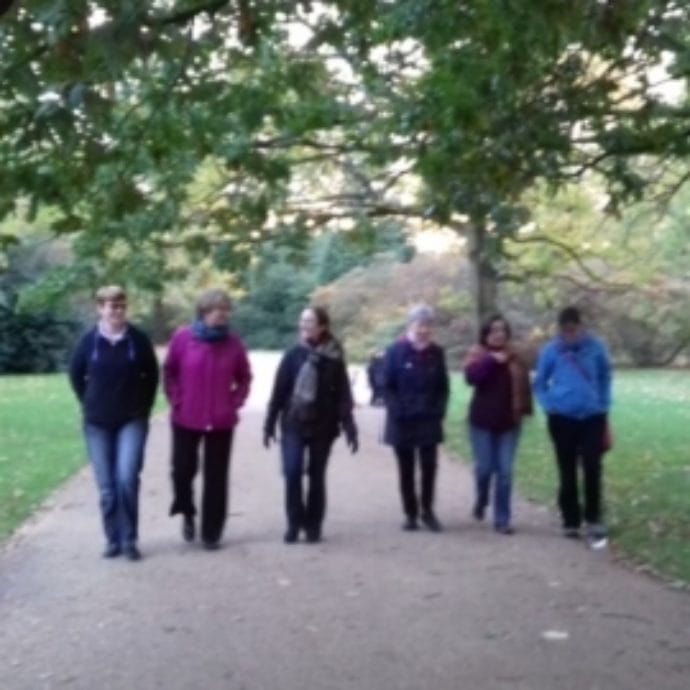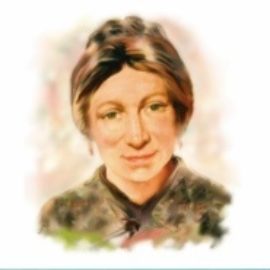Srs Lina and Inez fcJ from Yogyakarta, Indonesia, visited Mr Karyawandi, a rice organic farmer. Lina reports on this encounter
On Wednesday, April 3, Inez and I travelled to a village in Ganjuran, about an hour away by motorbike. There, we met Mr Karyawandi, who has been deeply committed to organic rice farming since 2008. In 2006, Yogyakarta was severely impacted by an earthquake that damaged many areas. The FCJ sisters assisted a group of farmers by providing a water pump to irrigate their rice fields, drawing water from the river since the earthquake had damaged the irrigation canals. At that time, Mr Karyawandi served as the leader of this group. Remarkably, the water pump has been functioning well to this day.
In the early stages of shifting to organic farming, he faced setbacks, experienced three failed harvests, and even endured his wife’s scepticism. These challenges only increased his motivation to learn more about organic rice farming methods, particularly organic fertilizers. Eventually, he successfully demonstrated the viability of organic rice farming to his family and the community. He uses leaves from his garden, animal manure, and organic kitchen compost—such as rice rinse water, vegetable scraps, and fruit peels—as fertilizer. During the dry season, when water is scarce, he plants a type of legume that serves as a natural nitrogen source for the rice fields. He manages 10,000 square meters of organic and semi-organic rice fields.
His story is just one farmer’s tale; many other farmers from different villages are also dedicated to organic farming. To support their marketing, Inez, in collaboration with the parish priests and some parishes, promotes organic produce within our parish. This initiative has received a positive response from the parish priest and community members. To carry out the economic aspects of the Laudato Si program in our community, we consume organic rice and local food. I believe each concern for Mother Earth is a sign of living in hope and joy, a way to protect our planet, and a legacy for future ‘bright’ generations. Inez says, ‘It is not enough to make the land organic, but first of all, we must make ourselves organic. It is about embracing an ecological and spiritual worldview toward nature. And the time is now.
